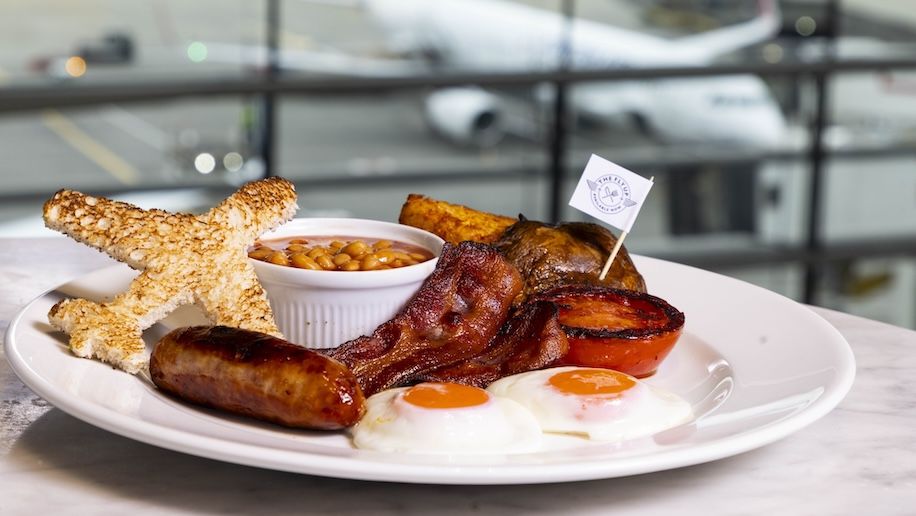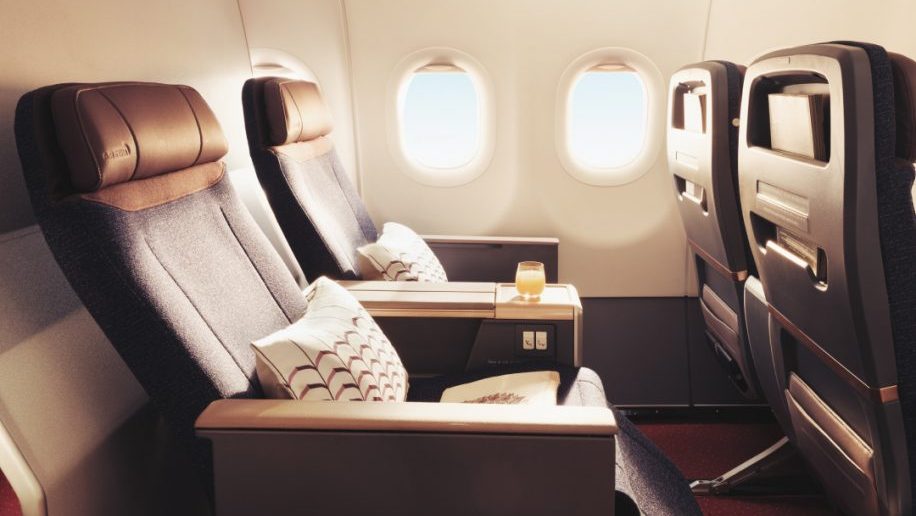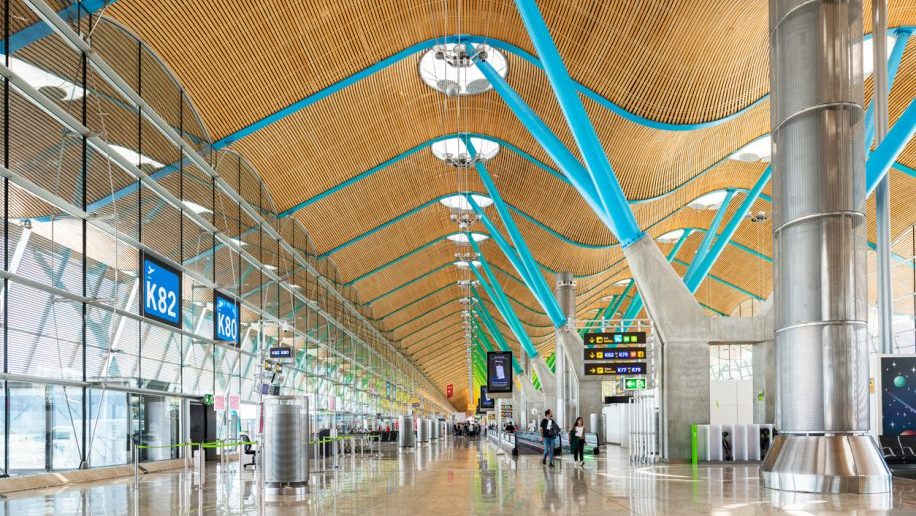Heathrow Airport has teamed up with Heston Blumenthal to launch a full English system cooked with oil which is then cleaned and recycled into renewable biofuels.
The 'Fly Up' is designed to raise awareness of sustainable aviation fuel, after Opinium Research findings showed that only 14 per cent of travelers have heard of SAF.
The dish is served at Blumenthal's Perfectionists' Café, located on the upper Departures level at Heathrow T2, although the airport noted that only airplane-shaped toast was used for the press images (so don't expect to have it on your plate !).
Quatra waste management service will collect, clean and recycle used cooking oils from the Fly Up breakfast, and then the oils and fats will undergo treatment and purification to remove organic impurities and water.
The processed used oil will then be sent to Quatra partners and transformed into biofuels, including SAF and hydrotreated vegetable oil (HVO). Quatra currently collects used cooking oil from 18 restaurants at Heathrow Airport.
SAF is made from a variety of sources, including used cooking oils, and can be used in aircraft engines along with regular fuel. The UK aviation sector projects it will account for around 40 per cent of the aviation industry's total carbon reduction by 2050. Heathrow says SAF is the “biggest innovation that will help the UK achieve its Net Zero by 2050.”
Matt Gorman, Heathrow's carbon director, said:
“We are delighted to partner with Heston Blumenthal's The Perfectionists' Café to introduce 'Fly Up', a breakfast that not only gives passengers a delicious start to the day but will also raise awareness of SAF and its potential to transform this industry.
“By demonstrating how cooking oils can be converted into biofuels, we want people to understand how SAF is a real solution to decarbonizing aviation and show how we continue our mission to reach Net Zero by 2050.”
The airport again called on the government to take more measures to increase SAF production.
“We know that having the right government policies in place is crucial for this change to occur. “We need a mandate for the use of SAF, as well as a price support mechanism, to de-risk and incentivize investment in UK SAF facilities.”
Carlos Santos, head chef at The Perfectionists' Café, added:
“This is an exciting partnership that we are delighted to be a part of. ‘Fly Up’ is made up of the best British ingredients – a breakfast we are proud of, not least because it is a positive step towards a more sustainable future for air travel.”
Heathrow aims for SAF to account for 11 per cent of jet fuel used by 2030, and also has a plan to halve the price gap between conventional jet fuel and SAF to incentivize airlines to use the fuel.
The plan aims for 2.5 per cent of the fuel used at Heathrow to be SAF by 2024. If this is achieved, it will equate to up to 155,000 tonnes of fuel.
Meanwhile, the airport has already switched to HVO biodiesel on the ground, with more than 95 percent of its operational diesel fleet now using the fuel.
Riders can also help address the industry's carbon emissions by supporting SAF or certified reforestation projects through climate technology company CHOOOSE's platform.
For more information on SAF, check out our feature:
What is sustainable aviation fuel (SAF)?
heathrow.com











